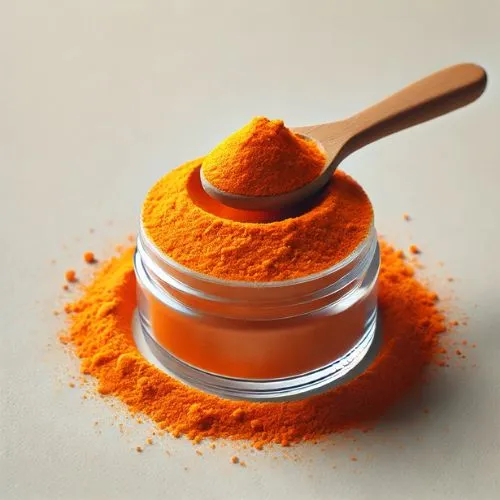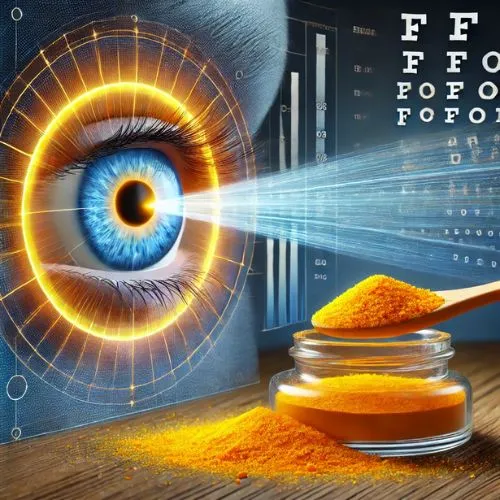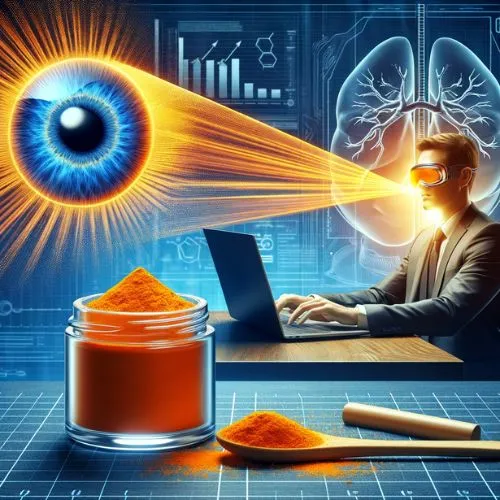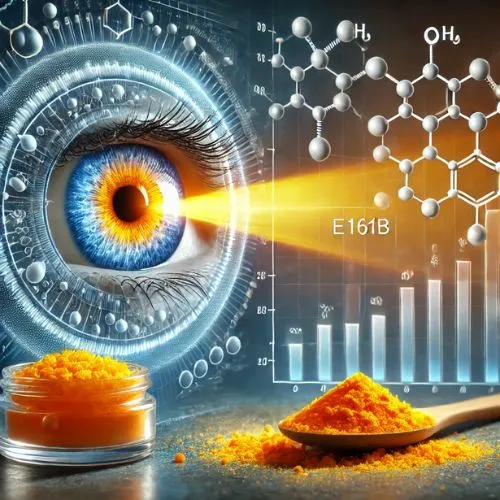Can Lutein E161(b) Protect Your Eyes from Blue Light?
In our increasingly digital world, exposure to blue light from screens and devices has become a growing concern for eye health. Lutein E161(b), a powerful carotenoid found in various foods and supplements, has emerged as a potential protector against the harmful effects of blue light. This article explores how Lutein E161(b) works to safeguard our vision and whether it can effectively combat digital eye strain.

How Lutein E161(b) Blocks Harmful Blue Light to Protect Vision?
Lutein E161(b) is a natural pigment that accumulates in the macula, the central part of the retina responsible for sharp, detailed vision. This unique positioning allows Lutein E161(b) to act as a powerful shield against harmful blue light rays.
The Macular Pigment and Blue Light Filtration
The macular pigment, mainly made up of Lutein (E161(b)) and its isomer Zeaxanthin, acts as a natural blue light filter. It absorbs and filters high-energy blue light, preventing it from reaching and potentially damaging the photoreceptor cells in the retina. This protective function helps maintain eye health by reducing the risk of light-induced damage, promoting overall vision preservation and supporting long-term retinal function.
Antioxidant Properties of Lutein E161(b)
In addition to its light-filtering properties, Lutein (E161(b)) is a powerful antioxidant. It helps neutralize harmful free radicals produced by blue light exposure, offering protection to the sensitive structures of the eye. By reducing oxidative stress, Lutein helps preserve eye health and prevents potential damage, supporting long-term vision and minimizing the risks associated with prolonged exposure to blue light from digital screens and other sources.
Enhancing Visual Performance
Research indicates that higher concentrations of Lutein E161(b) in the macula can improve visual acuity and contrast sensitivity. This boost in visual performance is especially beneficial for screen use, as digital devices emit substantial amounts of blue light. By increasing macular Lutein levels, individuals may experience enhanced clarity and better overall vision, making it easier to see details and reduce eye strain during prolonged exposure to screens.

Is Lutein E161(b) Effective in Reducing Digital Eye Strain?
As we spend more time in front of digital devices, many individuals experience symptoms of digital eye strain, including eye fatigue, dryness, and blurred vision. The question arises: can Lutein E161(b) help alleviate these symptoms?
Lutein E161(b) and Eye Comfort
Several studies have explored the effects of Lutein E161(b) supplementation on eye comfort during extended screen time. Participants typically report less eye fatigue and enhanced visual comfort after consistent intake of Lutein E161(b), suggesting that it may help alleviate discomfort caused by prolonged screen exposure. This highlights Lutein's potential to support eye health and improve overall comfort during digital device use.
Impact on Glare Recovery
Glare from digital screens is a major cause of eye strain. Lutein E161(b) may help reduce glare recovery time, enabling the eyes to adjust more rapidly after exposure to bright light sources, such as digital displays. By enhancing the eyes' ability to recover from glare, Lutein can contribute to greater visual comfort and reduce the discomfort associated with prolonged screen use.
Long-term Protection Against Blue Light Damage
While immediate relief from digital eye strain is beneficial, the long-term protective effects of Lutein E161(b) against cumulative blue light exposure may be even more crucial. Regular intake of Lutein E161(b) could help maintain eye health and potentially reduce the risk of age-related eye conditions exacerbated by blue light exposure.

The Science Behind Lutein E161(b) and Blue Light Protection
To fully appreciate the potential of Lutein E161(b) in protecting our eyes from blue light, it's essential to understand the scientific evidence supporting its efficacy.
Clinical Studies on Lutein E161(b) and Blue Light
Numerous clinical trials have explored the relationship between Lutein E161(b) intake and protection against blue light. These studies often measure macular pigment optical density (MPOD), visual performance metrics, and subjective measures of eye comfort to assess the effectiveness of Lutein E161(b).
Mechanism of Action
At the molecular level, Lutein E161(b) acts as a blue light filter due to its unique chemical structure. Its long chain of conjugated double bonds allows it to effectively absorb high-energy blue light wavelengths, preventing them from reaching sensitive retinal cells.
Dosage and Bioavailability
The effectiveness of Lutein E161(b) in protecting against blue light depends on its concentration in the macula. Research indicates that a daily intake of 10-20 mg of Lutein E161(b) may be beneficial for most adults. However, factors such as individual absorption rates and dietary habits can influence the optimal dosage.
Synergistic Effects with Other Nutrients
While Lutein E161(b) is powerful on its own, its protective effects may be enhanced when combined with other nutrients. Zeaxanthin, another carotenoid often found alongside Lutein E161(b) in nature, works synergistically to provide comprehensive eye protection.
Conclusion
In conclusion, the growing body of scientific evidence suggests that Lutein E161(b) can indeed play a significant role in protecting our eyes from harmful blue light. Its ability to filter blue light, coupled with its antioxidant properties, makes it a valuable tool in maintaining eye health in our digital age. As research continues to unfold, Lutein E161(b) stands out as a promising natural solution for those seeking to safeguard their vision against the challenges of modern screen use.
If you're interested in learning more about Lutein E161(b) and other natural plant extracts for eye health, don't hesitate to contact us at info@yanggebiotech.com. Our team of experts is ready to provide you with innovative, high-quality solutions to meet your specific needs.

References
1. Stringham, J. M., et al. (2016). Macular Carotenoid Supplementation Improves Visual Performance, Sleep Quality, and Adverse Physical Symptoms in Those with High Screen Time Exposure. Foods, 5(3), 66.
2. Bernstein, P. S., et al. (2016). Lutein, zeaxanthin, and meso-zeaxanthin: The basic and clinical science underlying carotenoid-based nutritional interventions against ocular disease. Progress in Retinal and Eye Research, 50, 34-66.
3. Nolan, J. M., et al. (2019). The impact of macular pigment augmentation on visual performance using different carotenoid formulations. Investigative Ophthalmology & Visual Science, 60(3), 835-844.
4. Yao, Y., et al. (2013). Lutein supplementation improves visual performance in Chinese drivers: 1-year randomized, double-blind, placebo-controlled study. Nutrition, 29(7-8), 958-964.
5. Loughman, J., et al. (2010). Macular pigment and its contribution to visual performance and experience. Journal of Optometry, 3(2), 74-90.

Based on your location and order quantity, you will have the opportunity to receive a limited time free shipping promotion!

Who we are


